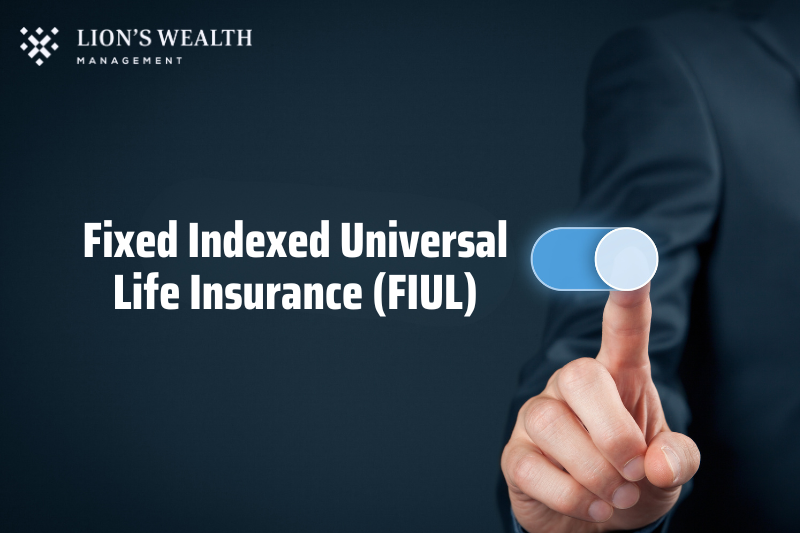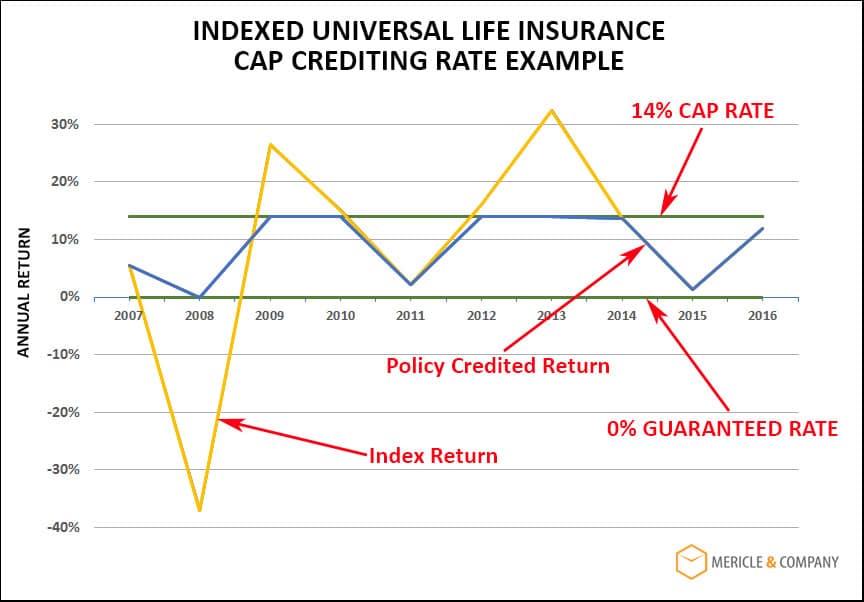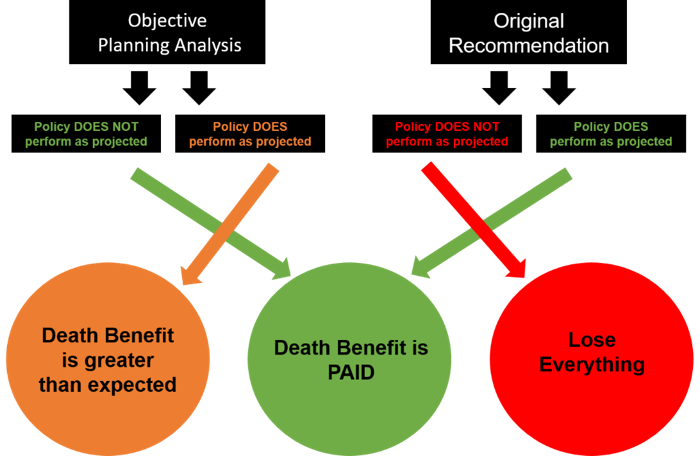All Categories
Featured
Table of Contents
1), usually in an effort to defeat their classification standards. This is a straw male argument, and one IUL people love to make. Do they compare the IUL to something like the Vanguard Total Amount Stock Market Fund Admiral Show to no lots, an expense ratio (EMERGENCY ROOM) of 5 basis factors, a turn over proportion of 4.3%, and an outstanding tax-efficient record of distributions? No, they contrast it to some awful proactively handled fund with an 8% tons, a 2% ER, an 80% turn over ratio, and an awful record of short-term funding gain distributions.
Common funds often make yearly taxable distributions to fund proprietors, even when the value of their fund has gone down in value. Common funds not just call for earnings reporting (and the resulting annual taxation) when the mutual fund is increasing in value, however can also enforce earnings tax obligations in a year when the fund has dropped in worth.
That's not how common funds work. You can tax-manage the fund, collecting losses and gains in order to minimize taxable distributions to the capitalists, however that isn't somehow mosting likely to transform the reported return of the fund. Just Bernie Madoff types can do that. IULs avoid myriad tax catches. The possession of common funds might require the common fund proprietor to pay estimated taxes.

IULs are simple to place to make sure that, at the proprietor's fatality, the beneficiary is not subject to either income or estate tax obligations. The exact same tax decrease strategies do not work almost as well with shared funds. There are countless, frequently expensive, tax obligation catches associated with the moment trading of common fund shares, catches that do not apply to indexed life Insurance policy.
Opportunities aren't really high that you're going to undergo the AMT because of your shared fund distributions if you aren't without them. The rest of this one is half-truths at finest. For example, while it holds true that there is no revenue tax due to your successors when they acquire the profits of your IUL plan, it is also real that there is no income tax as a result of your heirs when they inherit a common fund in a taxable account from you.
Universal Life Insurance Rates
There are far better ways to avoid estate tax obligation problems than getting financial investments with low returns. Common funds may create revenue taxes of Social Security advantages.

The development within the IUL is tax-deferred and may be taken as free of tax earnings by means of car loans. The plan proprietor (vs. the shared fund supervisor) is in control of his/her reportable revenue, thus enabling them to lower or also get rid of the taxation of their Social Security benefits. This one is excellent.
Right here's an additional minimal issue. It's real if you buy a shared fund for state $10 per share prior to the distribution date, and it disperses a $0.50 circulation, you are then going to owe tax obligations (most likely 7-10 cents per share) regardless of the truth that you have not yet had any kind of gains.
In the end, it's really concerning the after-tax return, not exactly how much you pay in taxes. You're also possibly going to have more money after paying those tax obligations. The record-keeping demands for possessing shared funds are significantly much more intricate.
With an IUL, one's records are kept by the insurance provider, duplicates of annual declarations are mailed to the owner, and circulations (if any kind of) are totaled and reported at year end. This is likewise kind of silly. Obviously you ought to maintain your tax records in instance of an audit.
What Is Group Universal Life
Rarely a factor to buy life insurance. Mutual funds are frequently component of a decedent's probated estate.
Furthermore, they go through the delays and expenses of probate. The earnings of the IUL policy, on the other hand, is constantly a non-probate distribution that passes outside of probate straight to one's called beneficiaries, and is as a result not subject to one's posthumous creditors, unwanted public disclosure, or similar hold-ups and expenses.
Medicaid incompetency and life time earnings. An IUL can give their proprietors with a stream of income for their whole life time, regardless of exactly how lengthy they live.

This is useful when arranging one's affairs, and transforming properties to income prior to an assisted living facility arrest. Shared funds can not be transformed in a similar fashion, and are generally taken into consideration countable Medicaid possessions. This is another silly one supporting that inadequate individuals (you recognize, the ones that need Medicaid, a government program for the poor, to spend for their assisted living facility) should use IUL rather than shared funds.
Ul Mutual Insurance Company
And life insurance policy looks terrible when contrasted relatively versus a retirement account. Second, individuals who have money to acquire IUL over and past their retired life accounts are mosting likely to have to be awful at handling cash in order to ever get approved for Medicaid to pay for their retirement home prices.
Persistent and incurable ailment biker. All plans will certainly allow a proprietor's very easy accessibility to money from their policy, typically forgoing any kind of abandonment fines when such people endure a significant disease, need at-home care, or become restricted to an assisted living home. Common funds do not offer a comparable waiver when contingent deferred sales fees still put on a shared fund account whose owner requires to market some shares to fund the prices of such a remain.
Difference Between Whole Life And Iul
Yet you get to pay even more for that benefit (rider) with an insurance plan. What a lot! Indexed universal life insurance coverage gives survivor benefit to the recipients of the IUL proprietors, and neither the proprietor neither the recipient can ever shed cash due to a down market. Mutual funds offer no such assurances or survivor benefit of any kind of kind.
I definitely don't require one after I get to financial freedom. Do I desire one? On standard, a purchaser of life insurance pays for the true price of the life insurance coverage benefit, plus the expenses of the plan, plus the profits of the insurance policy firm.
Whole Life Vs Indexed Universal Life
I'm not totally certain why Mr. Morais tossed in the entire "you can't lose cash" once more below as it was covered quite well in # 1. He simply wished to repeat the ideal marketing point for these things I expect. Again, you do not shed nominal dollars, but you can lose actual dollars, as well as face significant chance expense as a result of low returns.

An indexed universal life insurance plan proprietor might exchange their policy for a completely various plan without setting off income tax obligations. A mutual fund owner can not move funds from one shared fund company to an additional without marketing his shares at the former (thus setting off a taxable event), and redeeming new shares at the last, typically subject to sales charges at both.
While it holds true that you can trade one insurance coverage for another, the factor that individuals do this is that the very first one is such a terrible plan that also after getting a brand-new one and going with the early, adverse return years, you'll still come out in advance. If they were sold the best policy the very first time, they should not have any kind of wish to ever before exchange it and experience the early, adverse return years once again.
Latest Posts
Universal Insurance Payment
Universal Vs Term Insurance
Is An Iul A Good Investment